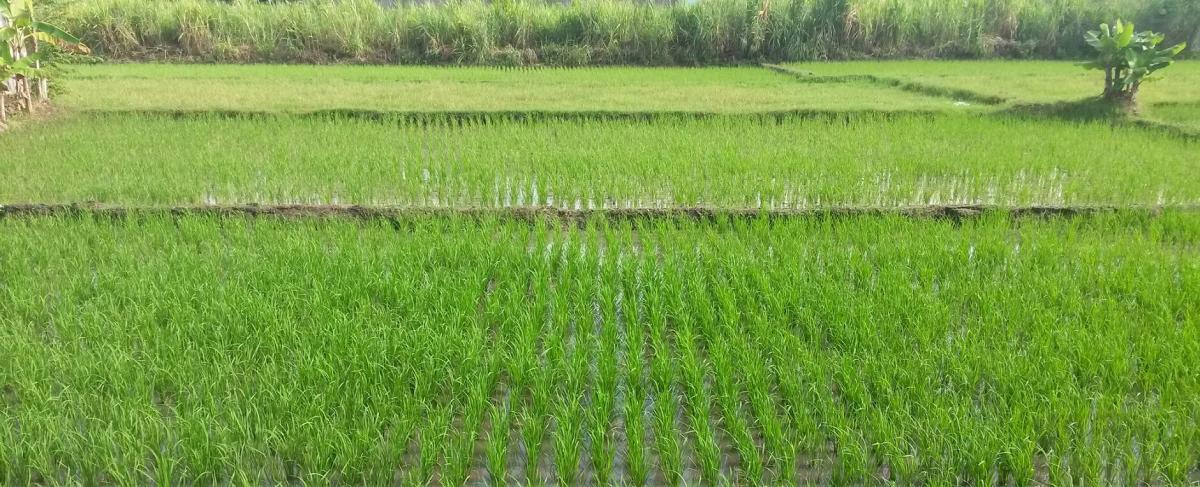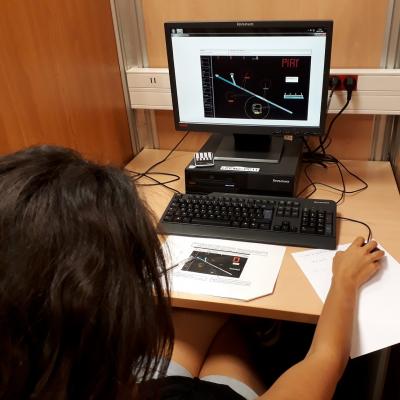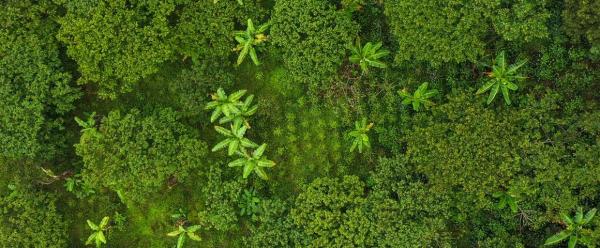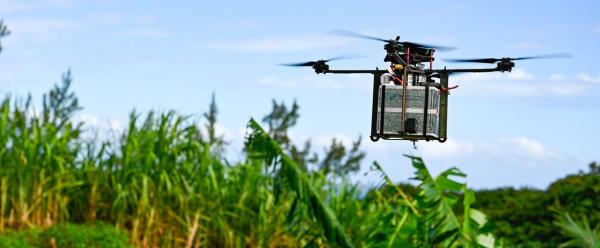Results & impact 10 October 2025
- Home
- Press area
- Press releases
- Experimental economics water management
Water management: good relations between people make for good economic choices

Irrigated rice field in the Jogyakarta region, Indonesia © S. Farolfi, CIRAD
In addition to environmental aspects, water availability for agriculture is directly linked to its use by different stakeholders. In an irrigation scheme, for instance, downstream farms are dependent on upstream use and farms: if those farms use too much water, there will not be enough for farms downstream, or the available water may be polluted. However, all farmers pay the same for the collective infrastructures that give them access to water.
For Stefano Farolfi, an economist with CIRAD and co-author of the study, that inequality exacerbates the mistrust that results from uncertainty, particularly in the event of water shortages. That mistrust in turn undermines collaboration and thus efficient collective water management. "When water is scarce, farmers upstream may abuse their position and extract water illegally, putting their individual interests before the common good, whereas farmers downstream may "punish" farmers upstream. For instance, they may contribute less to investments intended for collective infrastructure maintenance, which reduces everyone's access to water".
Many studies focus on communication as a way of reducing feelings of uncertainty and improving cooperation within groups. For Stefano Farolfi and his colleagues, that does not go far enough: the type of communication also impacts on people's perceptions of others, hence their relationships. And the better those relations, the better the decisions they make.
Good group relations foster sustainable resource management
By means of a paid game, to reflect the economic issues involved, the laboratory experiment modified just one variable at a time: the type of communication – more or less constrained – or the level of information, which was inversely proportional to the degree of uncertainty within the system.
"Experimental economics serves to reproduce an actual situation in the laboratory and then to modify just certain variables, to measure their impact precisely", Stefano Farolfi explains. "In this case, we modified the possibilities to communicate and the level of information available. And we observed that the less constrained the communication between players, the more satisfied they were with the relations established."
Those perceptions had a direct impact on individual management choices: "The more at ease the players were with each other, the less we saw individual behaviours that jeopardized common resource management".
According to the study, it is networks and social relations that govern the choices made by a group in terms of common resource management. While the perception of uncertainty is a recurrent issue, it may also be possible to solve other problems by means of better relations between the individuals within a group.
Reference
Marcela Brugnach, Sander de Waard, Dimitri Dubois, Stefano Farolfi. 2021. Relational quality and uncertainty in common pool water management: an exploratory lab experiment. Nature Scientific Reports




























